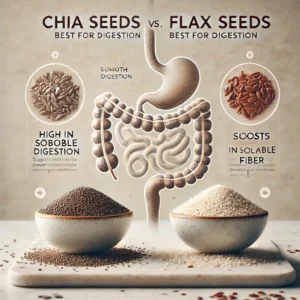Kombucha has gained immense popularity in recent years as a healthy, fermented drink that offers a wide range of benefits. Among its many advantages, one of the most commonly cited is its ability to support digestive health. But how exactly does kombucha improve digestion? In this comprehensive review, we’ll dive into what kombucha is, its key benefits for digestion, and how you can incorporate it into your routine for better gut health.
1. What is Kombucha and How Does it Support Digestive Health?
Kombucha is a fermented tea made by adding bacteria and yeast to sweetened tea, which then ferments over time. This fermentation process produces a range of organic acids, vitamins, and most importantly, probiotics, which are beneficial for gut health. The probiotics in kombucha help replenish and balance the gut microbiome, the collection of bacteria that lives in the digestive tract and plays a crucial role in breaking down food, absorbing nutrients, and supporting overall digestive health.
Several studies have highlighted kombucha’s potential to improve gut health. For instance, research published in the National Library of Medicine points out that the probiotics and organic acids found in kombucha can help balance the intestinal flora and improve gastrointestinal function
2. Key Benefits of Kombucha for Digestion
Kombucha offers several key benefits for digestion:
- Probiotics: The most significant digestive benefit comes from the probiotics it contains. These live microorganisms support gut health by replenishing good bacteria, which helps with digestion and reduces bloating.
- Organic Acids: Kombucha contains acetic acid, gluconic acid, and lactic acid, all of which help regulate the pH balance of the stomach and improve digestion. These acids assist in breaking down food more efficiently.
- Anti-Inflammatory Properties: Kombucha has anti-inflammatory compounds that can help reduce inflammation in the gut, which may ease symptoms of irritable bowel syndrome (IBS) and other digestive issues.
Studies, including those published in ResearchGate and the National Institutes of Health (NIH), emphasize kombucha’s role in reducing gastrointestinal distress and promoting a healthy digestive tract
3. Kombucha and the Gut Microbiome: How it Balances Your Flora
The gut microbiome consists of trillions of bacteria, and maintaining a balanced gut flora is essential for digestive and overall health. Kombucha, being rich in probiotics, contributes to the diversity of bacteria in the gut. A healthy and diverse gut microbiome has been linked to improved digestion, better nutrient absorption, and a stronger immune system.
Kombucha’s probiotics can help:
- Repopulate beneficial bacteria: If your gut flora is unbalanced due to poor diet, antibiotics, or stress, kombucha can help repopulate the gut with beneficial bacteria.
- Prevent bloating: By breaking down complex carbohydrates and improving digestion, kombucha can reduce bloating and discomfort after meals.
A study published by PMC (Public Medical Central) shows that fermented beverages like kombucha have a significant impact on gut health and microbial diversity
4. How to Incorporate Kombucha Into Your Daily Routine for Gut Health
Kombucha is versatile and easy to integrate into your daily routine. Here are some tips for adding it to your diet:
- Start Slowly: If you’re new to kombucha, begin with a small glass (about 4–6 ounces) per day. Overconsumption can sometimes lead to stomach discomfort, especially for those sensitive to fermented foods.
- Choose Different Flavors: One of the great things about kombucha is its variety of flavors. You can try kombucha infused with fruits like berries or citrus to keep it interesting.
- Drink It With Meals: Kombucha pairs well with meals, especially heavier or more indulgent foods. Drinking kombucha with or after meals may help aid digestion and reduce bloating.
5. My Personal Experience: How Kombucha Improved My Digestion
When I first heard about kombucha, I was skeptical about how a fermented tea could really improve my digestion. However, after incorporating it into my diet, the results were undeniable. The probiotics in kombucha helped me achieve something I hadn’t been able to accomplish with other products: a more balanced and stable gut. I found kombucha especially helpful after large or heavy meals when I would usually experience bloating or discomfort.
One of the things I appreciated most was how easy it was to add kombucha to my routine. Drinking a small glass a day made my digestion feel smoother and more efficient within weeks. Beyond digestion, I even noticed an increase in my daily energy levels—although this could be attributed to the improved gut health. While kombucha may not work the same way for everyone, it was a valuable addition to my diet, helping to keep my digestive system in check.
Conclusion: Why Kombucha is a Great Choice for Digestive Health
Kombucha is a powerful, natural remedy for promoting digestive health. Its high content of probiotics and organic acids makes it a beneficial addition to anyone looking to improve gut function. Whether you’re dealing with digestive discomfort or simply looking to maintain a healthy gut, kombucha offers a delicious and effective way to support your digestive system. As more research supports the benefits of kombucha, this fermented drink continues to be a top choice for those aiming for better digestion in 2024 and beyond.





